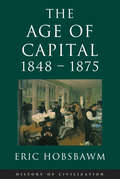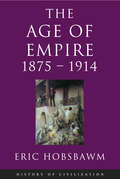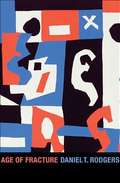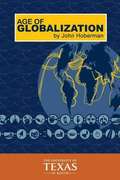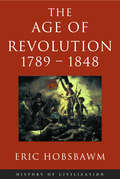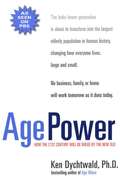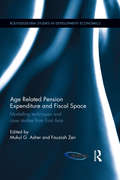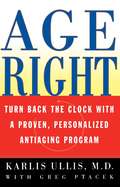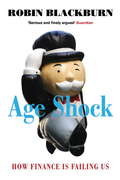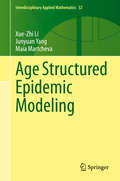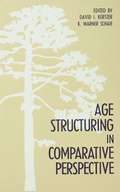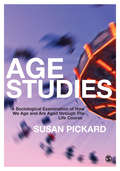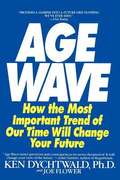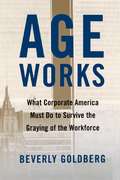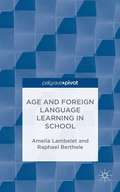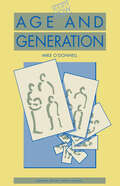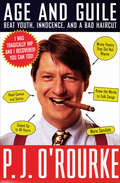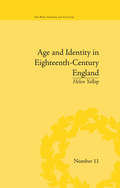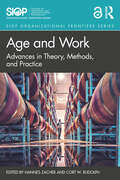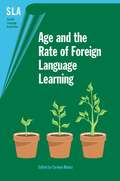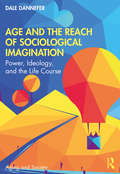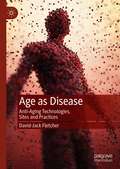- Table View
- List View
Age Of Capital: 1848-1875
by Prof Eric HobsbawmA magisterial account of the rise of capitalismEric Hobsbawm's magnificent treatment of the crucial years 1848-1875 is a penetrating analysis of the rise of capitalism and the consolidation of bourgeois culture. In the 1860s a new word entered the economic and political vocabulary of the world: 'capitalism'. The global triumph of capitalism is the major theme of history in the decades after 1848. The extension of capitalist economy to four corners of the globe, the mounting concentration of wealth, the migration of men, the domination of Europe and European culture made the third quarter of the nineteenth century a watershed. This is a history not only of Europe but of the world. Eric Hobsbawm's intention is not to summarise facts, but to draw facts together into a historical synthesis, to 'make sense of' the period, and to trace the roots of the present world back to it. He integrates economics with political and intellectual developments in this objective yet original account of revolution and the failure of revolution, of the cycles of boom and slump that characterise capitalist economies, of the victims and victors of the bourgeois ethos.
Age Of Empire: 1875-1914
by Eric HobsbawmTHE AGE OF EMPIRE is a book about the strange death of the nineteenth century, the world made by and for liberal middle classes in the name of universal progress and civilisation. It is about hopes realised which turned into fears: an era of unparalleled peace engendering an era of unparalleled war; revolt and revolution emerging on the outskirts of society; a time of profound identity crisis for bourgeois classes, among new and sudden mass labour movements which rejected capitalism and new middle classes which rejected liberalism. It is about world empires built and held with almost contemptuous ease by small bodies of Europeans which were to last barely a human lifetime, and a European domination of world history, which was never more confident than at the moment it was about to disappear for ever. It is about Queen Victoria, Madame Curie and the Kodak Girl, and the novel social world of cloth caps, golf clubs and brassieres, about Nietzsche, Carnegie, William Morris and Dreyfus, about politically ineffective terrorists, one of whom, to his and everyone's surprise, started a world war.With the AGE OF EMPIRE, Eric Hobsbawm, Britain's leading historian of the left, brings to a dazzling climax his brilliant interpretative history of 'the long nineteenth century'.
Age Of Empire: 1875-1914
by Prof Eric HobsbawmTHE AGE OF EMPIRE is a book about the strange death of the nineteenth century, the world made by and for liberal middle classes in the name of universal progress and civilisation. It is about hopes realised which turned into fears: an era of unparalleled peace engendering an era of unparalleled war; revolt and revolution emerging on the outskirts of society; a time of profound identity crisis for bourgeois classes, among new and sudden mass labour movements which rejected capitalism and new middle classes which rejected liberalism. It is about world empires built and held with almost contemptuous ease by small bodies of Europeans which were to last barely a human lifetime, and a European domination of world history, which was never more confident than at the moment it was about to disappear for ever. It is about Queen Victoria, Madame Curie and the Kodak Girl, and the novel social world of cloth caps, golf clubs and brassieres, about Nietzsche, Carnegie, William Morris and Dreyfus, about politically ineffective terrorists, one of whom, to his and everyone's surprise, started a world war.With the AGE OF EMPIRE, Eric Hobsbawm, Britain's leading historian of the left, brings to a dazzling climax his brilliant interpretative history of 'the long nineteenth century'.
Age Of Fracture
by Daniel T. RodgersIn the last quarter of the twentieth century, the ideas that most Americans lived by started to fragment. Mid-century concepts of national consensus, managed markets, gender and racial identities, citizen obligation, and historical memory became more fluid. Flexible markets pushed aside Keynesian macroeconomic structures. Racial and gender solidarity divided into multiple identities; community responsibility shrank to smaller circles. In this wide-ranging narrative, Daniel Rodgers shows how the collective purposes and meanings that had framed social debate became unhinged and uncertain. Age of Fracture offers a powerful reinterpretation of the ways in which the decades surrounding the 1980s changed America. Through a contagion of visions and metaphors, on both the intellectual right and the intellectual left, earlier notions of history and society that stressed solidity, collective institutions, and social circumstances gave way to a more individualized human nature that emphasized choice, agency, performance, and desire. On a broad canvas that includes Michel Foucault, Ronald Reagan, Judith Butler, Charles Murray, Jeffrey Sachs, and many more, Rodgers explains how structures of power came to seem less important than market choice and fluid selves. Cutting across the social and political arenas of late-twentieth-century life and thought, from economic theory and the culture wars to disputes over poverty, color-blindness, and sisterhood, Rodgers reveals how our categories of social reality have been fractured and destabilized. As we survey the intellectual wreckage of this war of ideas, we better understand the emergence of our present age of uncertainty.
Age Of Globalization
by John HobermanGlobalization is a fascinating spectacle that can be understood as global systems of competition and connectivity. These man-made systems provide transport, communication, governance, and entertainment on a global scale. International crime networks are also outgrowths of the same systems. In this course, you will learn how to identify and analyze global systems and better understand how they are changing societies around the world.
Age Of Revolution: 1789-1848
by Eric HobsbawmThe first in Eric Hobsbawm's dazzling trilogy on the history of the nineteenth century.Between 1789 and 1848 the world was transformed both by the French Revolution and also by the Industrial Revolution that originated in Britain. This 'Dual Revolution' created the modern world as we know it.Eric Hobsbawm traces with brilliant analytical clarity the transformation brought about in every sphere of European life by the Dual Revolution - in the conduct of war and diplomacy; in new industrial areas and on the land; among peasantry, bourgeoisie and aristocracy; in methods of government and of revolution; in science, philosophy and religion; in literature and the arts. But above all he sees this as the period when industrial capitalism established the domination over the rest of the world it was to hold for a century.Eric Hobsbawm's enthralling and original account is an impassioned but objective history of the most significant sixty years in the history of Europe.
Age Of Revolution: 1789-1848
by Prof Eric HobsbawmThe first in Eric Hobsbawm's dazzling trilogy on the history of the nineteenth century.Between 1789 and 1848 the world was transformed both by the French Revolution and also by the Industrial Revolution that originated in Britain. This 'Dual Revolution' created the modern world as we know it.Eric Hobsbawm traces with brilliant analytical clarity the transformation brought about in every sphere of European life by the Dual Revolution - in the conduct of war and diplomacy; in new industrial areas and on the land; among peasantry, bourgeoisie and aristocracy; in methods of government and of revolution; in science, philosophy and religion; in literature and the arts. But above all he sees this as the period when industrial capitalism established the domination over the rest of the world it was to hold for a century.Eric Hobsbawm's enthralling and original account is an impassioned but objective history of the most significant sixty years in the history of Europe.
Age Power: How the 21st Century Will Be Ruled By the New Old
by Ken DychtwaldIn this breakthrough book, Dychtwald explains how individuals, businesses, and governments can best prepare for a new era in which the priorities of our homes and nation will be set by the needs and desires of the elderly. He surveys how each of us must make individual decisions right now to "age-proof" our lives.
Age Related Pension Expenditure and Fiscal Space: Modelling techniques and case studies from East Asia (Routledge-ERIA Studies in Development Economics)
by Mukul G. Asher Fauziah ZenThis book explores the linkages between age-related pension expenditures and the fiscal space needed to fund them, as well as to organize the mix of financing methods with different risk-sharing arrangements. After critically assessing the existing models projecting age-related expenditure in the literature, the book focuses on the case studies of these inter-linkages in four highly-populated East Asian countries, namely China, Indonesia, India, and Japan. Nearly two- fifths of the global population live in these countries. Therefore, how these inter-linkages manifest themselves and the initiatives in these countries for finding fiscal space will have an impact on how the ageing issues are addressed globally. This book does several distinguishing characteristics, including exploration of inter-linkages between age-related expenditure and fiscal space, and application of country-specific methods to explore these linkages, rather than relying standard macroeconomic model. In the process, the studies also bring out the limitations of standardized model used in the literatures. Scholars and policy makers interested in the subject will definitely find the book of valuable use.
Age Right
by Greg Ptacek Karlis UllisWelcome to the new age in antiaging therapyDon't resign yourself to growing old gracefully. With Age Right as your guide, you can reduce body fat, increase strength and energy, and boost your sex drive, all while adding years to your life. With his revolutionary approach, Karlis Ullis, M.D,, provides you with the latest methods for stopping -- and even reversing -- the aging process. Based on twenty years of pioneering work with Olympic and professional athletes, Age Right offers an antiaging program that helps you extend your life span by identifying your unique aging pathway through the "Mind-Body-Spirit" test.USING A STEP-BY-STEP, PERSONALIZED PLAN OF EXERCISE, NUTRITION, AND ANTIAGING SUPPLEMENTS, THIS UNIQUE PROGRAM OFFERSThe most up-to-date information on how and why we age, and the four key factors in the aging processSelf-tests to determine your "biological age" (versus your chronological age)Expert advice on the best combination of nutrition, exercise, and supplements to fight the effects of age-related problems as indicated by your aging pathwaySpecific guidelines for modifying your antiaging regimen based on gender, fitness level, and lifestyleDetailed descriptions of all the antiaging supplements available today as well as treatments for the next millenniumPractical and extensive resources for choosing the right supplements, creating a specific diet and exercise plan, and finding the best antiaging health professionals
Age Right: Turn Back the Clock with a Proven, Personalized, Anti-Aging Program
by Greg Ptacek Karlis UllisWelcome to the new age in antiaging therapyDon't resign yourself to growing old gracefully. With Age Right as your guide, you can reduce body fat, increase strength and energy, and boost your sex drive, all while adding years to your life. With his revolutionary approach, Karlis Ullis, M.D,, provides you with the latest methods for stopping -- and even reversing -- the aging process. Based on twenty years of pioneering work with Olympic and professional athletes, Age Right offers an antiaging program that helps you extend your life span by identifying your unique aging pathway through the "Mind-Body-Spirit" test.USING A STEP-BY-STEP, PERSONALIZED PLAN OF EXERCISE, NUTRITION, AND ANTIAGING SUPPLEMENTS, THIS UNIQUE PROGRAM OFFERSThe most up-to-date information on how and why we age, and the four key factors in the aging processSelf-tests to determine your "biological age" (versus your chronological age)Expert advice on the best combination of nutrition, exercise, and supplements to fight the effects of age-related problems as indicated by your aging pathwaySpecific guidelines for modifying your antiaging regimen based on gender, fitness level, and lifestyleDetailed descriptions of all the antiaging supplements available today as well as treatments for the next millenniumPractical and extensive resources for choosing the right supplements, creating a specific diet and exercise plan, and finding the best antiaging health professionals
Age Shock
by Robin BlackburnMost countries face the future with an ageing population, yet most governments are cutting back on pensions and the care services needed by the elderly. Robin Blackburn exposes the perverse reasoning and special interests which have combined to produce this nonsensical state of affairs. This updated paperback edition of Age Shock includes a new preface explaining why the credit crunch and eurozone crisis have had such a devastating impact and outlining a way to guarantee decent pensions and care provision.
Age Structured Epidemic Modeling (Interdisciplinary Applied Mathematics #52)
by Maia Martcheva Xue-Zhi Li Junyuan YangThis book introduces advanced mathematical methods and techniques for analysis and simulation of models in mathematical epidemiology. Chronological age and class-age play an important role in the description of infectious diseases and this text provides the tools for the analysis of this type of partial differential equation models. This book presents general theoretical tools as well as large number of specific examples to guide the reader to develop their own tools that they may then apply to study structured models in mathematical epidemiology. The book will be a valuable addition to the arsenal of all researchers interested in developing theory or studying specific models with age structure.
Age Structuring in Comparative Perspective (Social Structure and Aging Series)
by David I. Kertzer K. Warner SchaieThis volume studies age as a basis for social organization by uniting research from the social science disciplines while implementing both cross-cultural and historical perspectives. The contributors, a distinguished interdisciplinary group of scholars, advance our understanding of age structuring by relating the changing societal level processes and individual aging experiences, and examining retirement practices, age and power in society, and cultural conceptions of age.
Age Studies: A Sociological Examination of How We Age and are Aged through the Life Course
by Dr Susan Pickard"With great rigour, yet an enviable lightness of touch, Susan Pickard has written an engaging and accessible book that students will love." - Rosaline Gill, City University London "A scholarly tour de force that brings into focus the various disciplines, histories, literatures and knowledges that have transformed us into modern subjects of age." - Stephen Katz, Trent University Age Studies takes an invigorating approach to the study of age and ageing in contemporary society. Encompassing ageing throughout the life course, taking in childhood, adolescence, mid-life and older age, and situated explicitly within a sociological disciplinary framework, Age Studies: Explores current social science debates on the study of ageing linking these to core sociological concepts. Links theory and application, using a variety of examples and international case studies Includes chapter summaries, further reading and guided questions. A thought-provoking companion to advanced undergraduates and postgraduate student studying ageing, older people, social gerontology and related courses.
Age Wave: The Challenges and Opportunities of an Aging America
by Ken Dychtwald Joe FlowerThis book, on aging, explores the profound effects our aging population, and the changing demographics that go with it, will have on every aspect of society, and on our personal plans and dreams for the future.
Age Works
by Beverly GoldbergIn ten years, the massive baby-boom generation will begin to reach retirement age, but few companies have paid attention to the fact that there are not enough younger workers to replace them. The challenge to corporate America, as Beverly Goldberg argues in Age Works, is to reinvent the workplace to make it better fit the needs of all employees, especially the older workers it must retain in order to thrive.
Age and Foreign Language Learning in School
by Amelia Lambelet Raphael BertheleThis book discusses the empirical studies on how biological age influences foreign language learning in school. It provides a succinct overview of a complex field for both experts and researchers interested in the teaching and learning of foreign languages.
Age and Generation (Society Now)
by Mike O'DonnellAge and Generation introduces students to the main sociological and anthropological issues surrounding this topic, from childhood to old age, and focuses, in particular, on youth culture.
Age and Guile: Beat Youth, Innocence, and a Bad Haircut
by P. J. O'Rourke<p>Readers may be shocked to discover that America's most provocative (and conservative) satirist, P. J. O'Rourke, was at one time a raving pinko, with scars on his formerly bleeding heart to prove it. In Age and Guile Beat Youth, Innocence, and a Bad Haircut, O'Rourke chronicles the remarkable trajectory that took him from the lighthearted fun of the revolutionary barricades to the serious business of the nineteenth hole. How did the O'Rourke of 1970, who summarized the world of "grown-ups" as "materialism, sexual hang-ups, the Republican party, uncomfortable clothes, engagement rings, car accidents, Pat Boone, competition, patriotism, cheating, lying, ranch houses, and TV" come to be in favor of all of those things? <p>What causes a beatnik-hippie type, comfortable sleeping on dirty mattresses in pot-addled communes—as P. J. did when he was a writer for assorted "underground" papers-to metamorphosize into a right-wing middle-aged grouch? Here, P. J. shows how his Socialist idealism and avant-garde aesthetic tendencies were cured and how he acquired a healthy and commendable interest in national defense, the balanced budget, Porsches, and Cohiba cigars. P. J. O'Rourke's message is that there's hope for all those suffering from acute Bohemianism, or as he puts it, "Pull your pants up, turn your hat around, and get a job."</p>
Age and Identity in Eighteenth-Century England ("The Body, Gender and Culture" #11)
by Helen YallopYallop looks at how people in eighteenth-century England understood and dealt with growing older. Though no word for ‘aging’ existed at this time, a person’s age was a significant aspect of their identity.
Age and Work: Advances in Theory, Methods, and Practice (SIOP Organizational Frontiers Series)
by Cort W. Rudolph Hannes ZacherThe edited volume Age and Work: Advances in Theory, Methods, and Practice presents a systematic collection of key advances in theory, methods, and practice regarding age(ing) and work. This cutting-edge collection breaks new ground by developing novel and useful theory, explaining underutilized but important methodological approaches, and suggesting original practical applications of emerging research topics. The book begins with a prologue by the World Health Organization’s unit head for aging and health, an introduction on the topic by the editors, and an overview of past, current, and future workforce age trends. Subsequently, the first main section outlines theoretical advances regarding alternative age constructs (e.g., subjective age), intersectionality of age with gender and social class, paradoxical age-related actions, generational identity, and integration of lifespan theories. The second section presents methodological advances regarding behavioral assessment, age at the team and organizational levels, longitudinal and diary methods, experiments and interventions, qualitative methods, and the use of archival data. The third section covers practical advances regarding age and job crafting, knowledge exchange, the work/nonwork interface, healthy aging, and absenteeism and presenteeism, and organizational meta-strategies for younger and older workers. The book concludes with an epilogue by an eminent scholar in age and work. Written in a scientific yet accessible manner, the book offers a valuable resource for undergraduate and graduate students, academics in the fields of psychology and business, as well as practitioners working in the areas of human resource management and organizational development.
Age and the Rate of Foreign Language Learning
by Carmen MunozThis book examines the various ways in which age affects the process and the product of foreign language learning in a school setting. It presents studies that cover a wide range of topics, from phonetics to learning strategies. It will be of interest to students and researchers working in SLA research, language planning and language teaching.
Age and the Reach of Sociological Imagination: Power, Ideology and the Life Course (Aging and Society)
by Dale DanneferThe dominant narratives of both science and popular culture typically define aging and human development as self-contained individual matters, failing to recognize the degree to which they are shaped by experiential and contextual contingencies. Our understandings of age are thereby "boxed in" and constricted by assumptions of "normality" and naturalness that limit our capacities to explore possible alternative experiences of development and aging, and the conditions – both individual and social – that might foster such experiences. Combining foundational principles of critical social science with recent breakthroughs in research across disciplines ranging from biology to economics, this book offers a scientifically and humanly expanded landscape for apprehending the life course. Rejecting familiar but false dichotomies such as "nature vs. nurture" and "structure vs. agency", it clarifies the organismic fundamentals that make the actual content of experience so centrally important in age and development, and it also explores why attention to these fundamentals has been so resisted in studies of individuals and individual change, and in policy and practice as well. In presenting the basic principles and reviewing the current state of knowledge, Dale Dannefer introduces multi-levelled social processes that shape human development and aging over the life course and age as a cultural phenomenon – organizing his approach around three key frontiers of inquiry that each invite a vigorous exercise of sociological imagination: the Social-Structural Frontier, the Biosocial Frontier and the Critical-Reflexive Frontier.
Age as Disease: Anti-Aging Technologies, Sites and Practices
by David-Jack FletcherAge as Disease explores the foundations of gerontology as a discipline to examine the ways contemporary society constructs old age as a disease-state. Framed throughout as ‘gerontological hygeine’, this book examines contemporary regimes, strategies and treatment protocols deployed throughout Australia, the United States, and the United Kingdom. The book deploys critical cultural theories such as biopolitics, somatechnics, ethics, and governmentality to examine how anti-aging technologies operate to problematise the aging body as always-already diseased, and how these come to constitute a movement of abolition, named here as ‘gerontological hygiene’.
